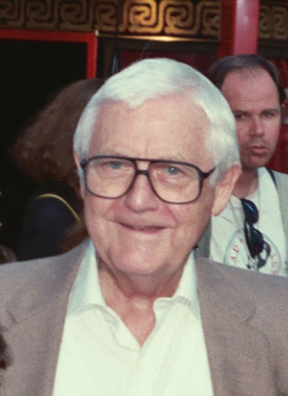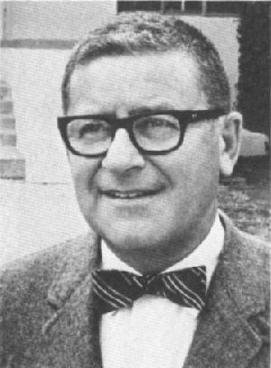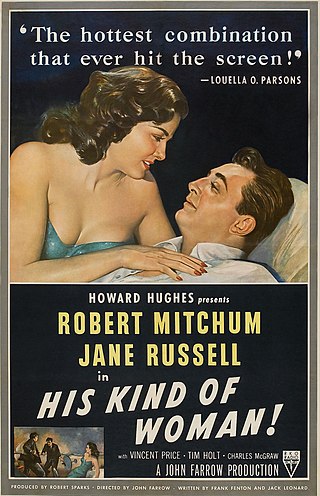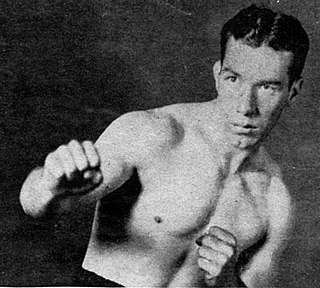
Robert Earl Wise was an American film director, producer, and editor. He won the Academy Awards for Best Director and Best Picture for his musical films West Side Story (1961) and The Sound of Music (1965). He was also nominated for Best Film Editing for Citizen Kane (1941) and directed and produced The Sand Pebbles (1966), which was nominated for Best Picture.

Day of the Fight is a 1951 American short-subject documentary film financed and directed by Stanley Kubrick, who based this black-and-white motion picture on a photo feature he shot two years earlier for Look magazine.

Somebody Up There Likes Me is a 1956 American drama film directed by Robert Wise and starring Paul Newman and Pier Angeli, based on the life of middleweight boxing legend Rocky Graziano. The supporting cast features Everett Sloane, Eileen Heckart, Harold J. Stone, Sal Mineo, and Robert Loggia. Steve McQueen has a brief unbilled speaking role as Fidel.

Robert Bushnell Ryan was an American actor and activist. Known for his portrayals of hardened cops and ruthless villains, Ryan performed for over three decades. He was nominated for the Academy Award for Best Supporting Actor for his role in the film noir drama Crossfire (1947).
Joseph Moncure March was an American poet, screenwriter, and essayist, best known for his long narrative poems The Wild Party and The Set-Up.

Born to Kill is a 1947 RKO Pictures American film noir starring Lawrence Tierney, Claire Trevor and Walter Slezak with Esther Howard, Elisha Cook Jr., and Audrey Long in supporting roles. The film was director Robert Wise's first film noir production, preceding his later work on The Set-Up (1949) and The Captive City (1952).
Champion is a 1949 American drama film noir sport film directed by Mark Robson with a screenplay written by Carl Foreman based on a short story by Ring Lardner, and starring Kirk Douglas, Marilyn Maxwell and Arthur Kennedy. The picture recounts the struggles of boxer "Midge" Kelly fighting his own demons while working to achieve success in the boxing ring. Cinematography by Franz Planer. The supporting cast features Paul Stewart, Ruth Roman and Lola Albright.

Mark Robson was a Canadian-American film director, producer, and editor. Robson began his 45-year career in Hollywood as a film editor. He later began working as a director and producer. He directed 34 films during his career, including Champion (1949), Bright Victory (1951), The Bridges at Toko-Ri (1954), Peyton Place (1957), The Inn of the Sixth Happiness (1958), Von Ryan's Express (1965), Valley of the Dolls (1967), and Earthquake (1974).
"Requiem for a Heavyweight" is a teleplay written by Rod Serling and produced for the live television show Playhouse 90 on 11 October 1956. Six years later, it was adapted into the 1962 feature film of the same name starring Anthony Quinn, Jackie Gleason, Mickey Rooney, and Julie Harris.

Blood on the Moon is a 1948 RKO black-and-white "psychological" Western film noir starring Robert Mitchum, Barbara Bel Geddes, Robert Preston and Walter Brennan. Directed by Robert Wise, the cinematography is by Nicholas Musuraca. The movie was shot in California as well as some of the more scenic shots at Red Rock Crossing, Sedona, Arizona. The picture is based on the novel Gunman's Chance by Luke Short.

Night and the City is a 1992 American neo-noir crime drama film and a remake of the 1950 film noir of the same name, itself an adaptation of Gerald Kersh's 1938 novel. The film stars Robert De Niro and Jessica Lange and is directed by Irwin Winkler from a script by Richard Price.

His Kind of Woman is a 1951 film noir starring Robert Mitchum and Jane Russell. The film features supporting performances by Vincent Price, Raymond Burr and Charles McGraw. The direction of the film, which was based on the unpublished story "Star Sapphire" by Gerald Drayson, is credited to John Farrow.

The Champ is a 1979 American neo noir drama sports film directed by Franco Zeffirelli and a remake of the 1931 Academy Award-winning film of the same name directed by King Vidor. It stars Jon Voight as Billy Flynn, a former boxer who attempts to support his son and reconcile with his ex-wife by fighting in the ring again.

David Price is a British former professional boxer who competed from 2009 to 2019. At regional level, he held multiple heavyweight championships, including the British and Commonwealth titles from 2012 to 2013, and challenged once for the European title in 2015. As an amateur, he won a bronze medal at the 2008 Olympics, gold at the 2006 Commonwealth Games and 2008 EU Championships, and three ABA titles; all in the super-heavyweight division.
Fighting Fools is a 1949 comedy film starring The Bowery Boys. The film was released on April 17, 1949 by Monogram Pictures and is the thirteenth film in the series.

Glory Alley is a 1952 American musical drama film directed by Raoul Walsh and starring Ralph Meeker, Leslie Caron and Gilbert Roland.
Charles Van Enger was an American cinematographer. In the 1920s Van Enger worked on all the silent films the German director Ernst Lubitsch made for Warner Bros. During the 1930s he worked in the British film industry. His later work was largely on supporting features for Universal Pictures and various independents.
Cassius Clay fought Argentine Alex Miteff in a ten-round boxing match in Louisville on October 7, 1961. Clay won the fight through a technical knockout when the referee stopped the fight in the sixth round. Miteff and Clay would feature in the 1962 film Requiem for a Heavyweight.
The Set-Up is a book-length narrative poem, written by Joseph Moncure March. It was first published in the winter of 1928 by Pascal Covici, Inc., after the success of March's first poem The Wild Party (1926) which became a succès de scandale after it was banned in Boston for lewdness.

Thomas William Lawless, better known as Bucky Lawless, was an American welterweight boxer from Auburn, New York, who fought 131 professional bouts between April 30, 1925, and October 9, 1936. He was known for his hair-trigger left-handed punch. Lawless was one of the first boxers to be approved by the New York State Athletic Commission to box in professional bouts before he was 18 years of age. During Lawless' boxing career, sports writers called him the "Uncrowned Welterweight Champion of the World" by virtue of his non-title victories over four champions.












